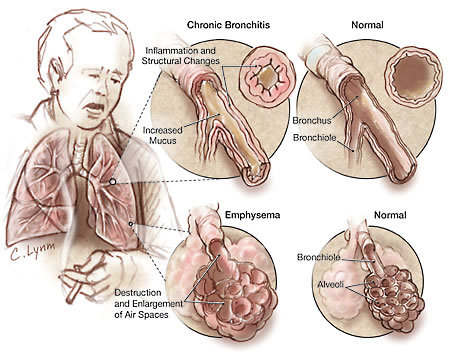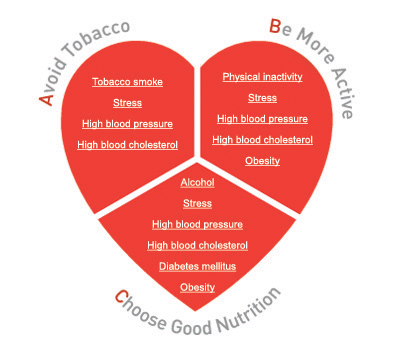What is asthma? Its a disease that causes both chronic and acute symptoms that make it difficult to breathe. It has three main components:
1. Inflammation- or swelling of already narrow airways.
2. Bronchospasm- or the constricting, and further narrow, of the airways to muscle contractions in the airways caused by irritation.
3. An increase in mucus production- which in combination with the other two can be problematic when mucus gets stuck in the airways and can cause a dangerous condition called mucus plugging. The best defense against this is adequate hydration in addition to following your treatment regiment.
Symptoms
Tightness in chest
wheezing
coughing
feeling short of breath-or like you can't catch your breath.
Your too breathless to walk or talk,
your lips or fingers are turning blue,
or if your rescue medication doesn't help.
I would like to expand on this and say that if someone's lips or fingers are turning blue you need to call 911 immediately, as well as if they can only speak in one or two word broken sentences. These are signs of impending, or full blown respiratory failure that needs immediate attention before cardiac arrest follows. In this situation set the person up right (after calling 911), instruct them to stay as calm as possible and coach them for slow deep breathing while continuing to administer rescue medication (usually Albuterol) until the ambulance arrives. Albuterol is a safe drug that can be taken in large doses, you should talk to your physician regarding emergency administration for your individual needs.
Otherwise you should seek the help of your primary physician, urgent care, or emergency room as soon as you notice that your symptoms are worse than usually, and not responding to your regular rescue treatments, not necessarily waiting until your in a life or death situation. Remember most asthma deaths are preventable.
Triggers?:This slide show does a great job discussing "triggers" or environmental causes of asthma flare ups. These can be anything from allergens such as dust, mold or pollen, even cockroaches and pets. It could be the air is to cold, hot, dry, or humid, exercise, cleaning chemicals, hairspray, or even ones not mentioned on the Pub Med slide show Red 40 food dye, and acid reflux. Not forgetting cigarette smoke of course, 1st or 2nd hand. They also have some good suggestions to avoid triggers. For people with persistent asthma though it may become necessary to systematically eliminate as many sources of lung irritants as possible- replacing flooring, buying special bedding, installing air filtration systems with your ac, the worse is when you have to get rid of your pets, or even moving to a new area in some cases can help people, if not just removing a certain tree from the yard. My point being, is that each case is different, but it will be worth the work when your breathing better, and using less medication.
Control? Next the article talks about long term medications where they mention inhaled corticosteroids to reduce inflammation. This is the first line long term treatment and most common, but some people may require antihistamines, mast cell stabilizers, long acting bronchodilators, anticholinergics, or even systemic steroids that are inhaled or injected, in addition to different airway clearance treatments available for people with trouble getting there phlegm out such as Flutter therapy. A whole explanation of all these would be longer than warranted, but if you find yourself using your rescue inhaler and taking Neb treatments several times a day, it is necessary to get better control of your symptoms with a stronger or more appropriate control medication and better avoidance of triggers. So it is important to know that there are several options available to treat asthma.
Asthma Action Plan? Next the slide show makes a very good point that people with asthma should have an asthma action plan, in conjunction with a device called a flow peak meter, which measures how well you can empty your lungs. This should be a plan covering your daily medications, and to respond to attacks, or breakthrough symptoms. You and your health care professional will establish your personal best peak flow and use it to create a green zone when you don't need treatment, a yellow zone which you can treat at home, and a red zone which means that if it stays there after your home treatment, you need to go see a doctor.
So here is the link to the slide show, check it out:
http://www.webmd.com/asthma/ss/slideshow-asthma-overview
I hope this helps anyone trying to learn more about their asthma, and I encourage you to keep educating yourselves.





